
AlphaLISA Human E-Cadherin Detection Kit, 500 Assay Points

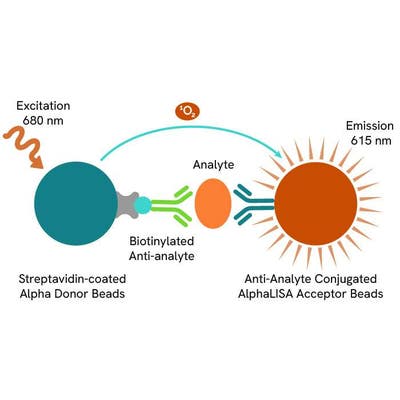
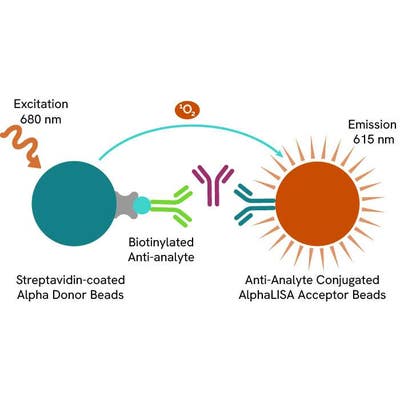 View All
View All
AlphaLISA Human E-Cadherin Detection Kit, 500 Assay Points

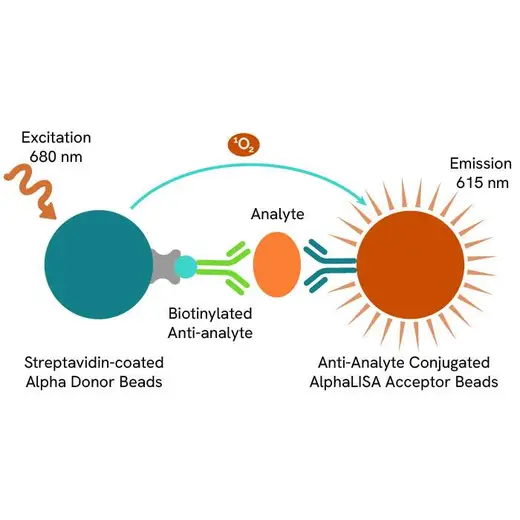
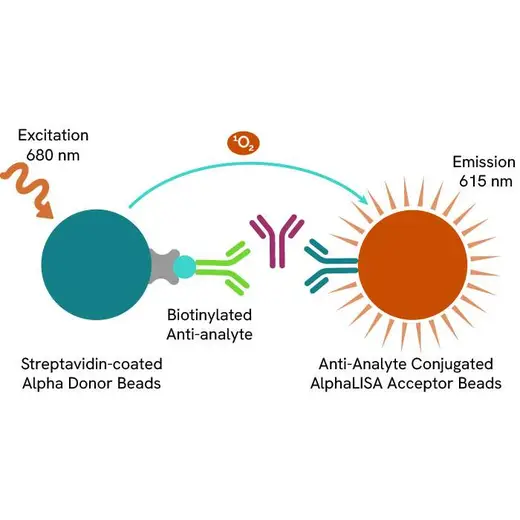





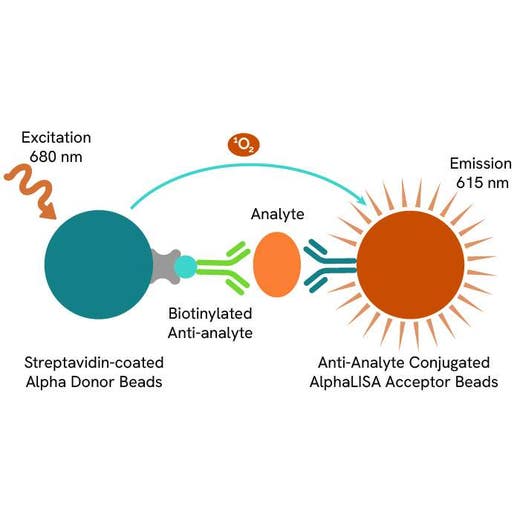
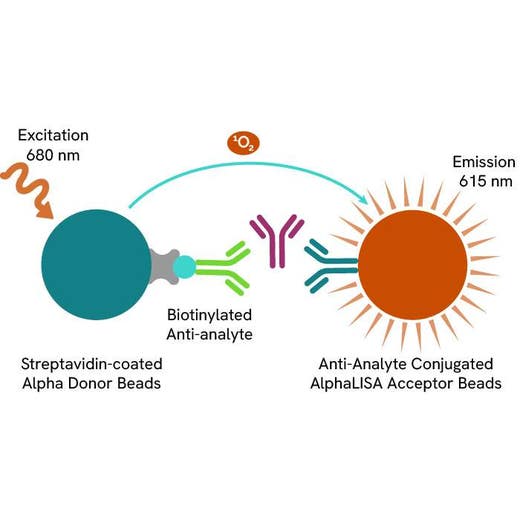




The AlphaLISA™ immunoassay kit for human E-cadherin enables the detection and quantitation of human E-cadherin in serum, buffered solution, and cell culture supernatants using a homogeneous AlphaLISA assay (no wash steps).
For research use only. Not for use in diagnostic procedures. All products to be used in accordance with applicable laws and regulations including without limitation, consumption and disposal requirements under European REACH regulations (EC 1907/2006).
| Feature | Specification |
|---|---|
| Application | Protein Quantification |
| Dynamic Range | 3.5 - 300,000 pg/mL |
| Limit of Detection | 3.5 pg/mL |
| Limit of Quantification | 13.2 pg/mL |
| Sample Volume | 5 µL |
The AlphaLISA™ immunoassay kit for human E-cadherin enables the detection and quantitation of human E-cadherin in serum, buffered solution, and cell culture supernatants using a homogeneous AlphaLISA assay (no wash steps).
For research use only. Not for use in diagnostic procedures. All products to be used in accordance with applicable laws and regulations including without limitation, consumption and disposal requirements under European REACH regulations (EC 1907/2006).







AlphaLISA Human E-Cadherin Detection Kit, 500 Assay Points







AlphaLISA Human E-Cadherin Detection Kit, 500 Assay Points







Product information
Overview
Formats:
- Our 100 assay point kit allows you to run 100 wells in 96-well format, using a 100 µL reaction volume (10 µL of sample).
- Our 500 assay point kit allows you to run 500 wells in 96-well or 384-well format, using a 50 µL reaction volume (5 µL of sample).
- Our 5,000 assay point kit allows you to run 5,000 wells in 96-well or 384-well format, using a 50 µL reaction volume (5 µL of sample).
Features:
- No-wash steps, no separation steps
- ELISA alternative technology
- Sensitive detection
- Broad sample compatibility
- Small sample volume
- Results in less than 3 hours
- Half the time of an ELISA assay
Epithelial Cadherin (E-Cadherin), also known as Cadherin-1 or Uvomorulin (in mouse and rat) is a single-pass transmembrane protein that facilitates calcium dependent cell adhesion. A member of the Cadherin family, E-Cadherin utilizes five extracellular EC domains to form cis-clusters between adjacent epithelial cells and trans-clusters within the same cell. Cleavage of the N-terminal domain by a number of proteases is critical for cell motility and EGFR-dependent survival. The intracellular domain of E-cadherin interacts with many proteins including β-catenin, α-catenin, vinculin, and plakoglobin. Lack of binding to any of these proteins has been indicated in cancer metastasis.
AlphaLISA technology allows the detection of molecules of interest in a no-wash, highly sensitive, quantitative assay. In an AlphaLISA assay, a biotinylated anti-analyte antibody binds to the Streptavidin-coated Donor beads while another anti-analyte antibody is conjugated to AlphaLISA Acceptor beads. In the presence of the analyte, the beads come into close proximity. The excitation of the Donor beads causes the release of singlet oxygen molecules that triggers a cascade of energy transfer in the Acceptor beads, resulting in a sharp peak of light emission at 615 nm.
Specifications
| Application |
Protein Quantification
|
|---|---|
| Automation Compatible |
Yes
|
| Brand |
AlphaLISA
|
| Detection Modality |
Alpha
|
| Dynamic Range |
3.5 - 300,000 pg/mL
|
| Limit of Detection |
3.5 pg/mL
|
| Limit of Quantification |
13.2 pg/mL
|
| Product Group |
Kit
|
| Sample Volume |
5 µL
|
| Shipping Conditions |
Shipped in Blue Ice
|
| Target |
E-Cadherin
|
| Target Class |
Biomarkers
|
| Target Species |
Human
|
| Technology |
Alpha
|
| Therapeutic Area |
Oncology
|
| Unit Size |
500 Assay Points
|
Image gallery






AlphaLISA Human E-Cadherin Detection Kit, 500 Assay Points






AlphaLISA Human E-Cadherin Detection Kit, 500 Assay Points






Video gallery

AlphaLISA Human E-Cadherin Detection Kit, 500 Assay Points

AlphaLISA Human E-Cadherin Detection Kit, 500 Assay Points

Resources
Are you looking for resources, click on the resource type to explore further.
AlphaLISA and LANCE (TR-FRET) biomarker assays can be used to measure ECM-associated protein modulation caused by human...


How can we help you?
We are here to answer your questions.






























